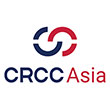UX researcher
A career as a UX researcher could suit you if you have good analytical skills and are interested in psychology, research and coding
Your role as a UX researcher will be to deliver the best possible experience for the users of a website, making the website as straightforward to use as possible.
As well as researching user behaviour and preference, you'll also look at the content of websites and consider design elements such as colours and images. With some companies you may be given a more technical IT role.
UX researcher roles cross over with that of UX analyst, UX designer and UX architect, and you may be known by any of these titles.
Responsibilities
As a UX researcher, you'll need to:
- meet clients to gather information about their requirements and to find out what needs researching, designing or usability testing
- be involved in sketching, prototyping and on occasion user testing, before passing the design onto the development team
- understand qualitative research methods
- have an awareness of costs and budgets
- put users at the centre of a design to make it simple, easy to use and good looking
- be confident in your presentation skills in order to present the stages of the design development to business users
- work closely within a multidisciplinary team, including web developers and programmers
- have technical knowledge to be able to explain what needs doing, to programmers
- ensure websites comply with the law and equal opportunities policies.
Salary
- Starting salaries for UX researchers are in the region of £20,000 to £25,000.
- With experience you can earn between £28,000 and £32,000.
- With ten or more years' experience in this position you could earn £42,000 to £47,000.
Depending on your level of experience, you could expect to earn between £250 and £500 per day as a freelancer.
Income figures are intended as a guide only.
Working hours
You'll generally work regular office hours from 9am to 5pm, Monday to Friday, but there may be some weekend and evening work to meet deadlines.
Short-term contracts, part-time work and freelance opportunities are available.
What to expect
- You'll usually be based in an office, though may have to attend client meetings at their offices. Opportunities also exist internationally.
- The dress code tends to be relaxed and informal, with the focus instead being on creating work to the expected standard and delivering it on time.
- User experience is a growing area, with an increasing number of roles being created for graduates.
Related case studies
Qualifications
There are a variety of entry routes into a career as a UX researcher. Entry via a degree is common, though it's possible to enter with equivalent on-the-job experience.
Entry can be achieved with a range of degrees, including:
- computing science
- design
- human-centred interaction
- psychology
- research methods
- web design and development.
A Masters in human-centred interaction can be considered useful and relevant, though not essential, and Masters courses are also on offer in the linked field of user experience design.
Knowledge and experience tend to be the most important requirements. Employers look for a strong portfolio, showing examples of work. These could include wireframes you have created, scenarios you have developed or photos of you leading a workshop. Your portfolio could be online or in PDF format and should support you talking through the UX process during an interview.
Skills
You'll need to have:
- a mixture of creative and technical skills
- excellent teamworking skills
- verbal communication skills, as you present your research findings and the reasons behind your design decisions
- strong written communication ability, as you may be involved in writing copy for the website
- creativity and innovation, to come up with new ideas
- enthusiasm for design and technology
- knowledge of coding, even if you're not doing it yourself, such as an understanding of HTML, Javascript and CSS
- experience of using prototyping software tools, for example FlowMapp, Axure Pro and VisuaSiteMaps
- the ability to use Adobe Creative Cloud, including Photoshop.
Work experience
Some of the degrees relevant for a career in UX include a year in industry or a work placement, which is a great way to build up experience. Internships, either during your degree or afterwards, are also available.
It's advisable to try and get some work experience, especially if your degree is not directly related to the role of UX researcher. Other ways to develop experience include doing your own user research on websites. Get involved in extracurricular projects, such as 'hackathons' or company competitions, and work alongside fellow students with different specialisms to you. Attend meet-ups, conferences and workshops for the UX community.
Sending speculative applications to companies asking for work experience or work shadowing can be a useful way to find out more about the role and to see which area you would prefer. This is also a great way to build up contacts.
Find out more about the different kinds of work experience and internships that are available.
Advertisement
Employers
UX is a growth area, with UX researchers working in virtually every industry. This includes the media, digital marketing agencies, telecommunications companies, banks, web development agencies and retail. Positions exist in the public and private sector, multi-national companies and SMEs.
While the daily rate for freelancers can be appealing, the work can be more unpredictable and your income can be more unsteady.
Find out more about opportunities through social media. Follow thought leaders on Twitter and identify people working in the UX field through LinkedIn.
Look for job vacancies at:
Professional development
The majority of your training will be through bespoke online courses, independent research and self-led learning, as well as learning from more experienced colleagues. Online courses include human-computer interaction and web usability.
You'll develop skills in UX methodologies, including surveys and usability testing, and are likely to develop increasing expertise in Adobe Creative Cloud, as well as Sketch and Axure RP.
Depending on your focus, you may also take courses in, or self-learn, technical skills such as HTML and CSS. If your emphasis is on the usability testing aspects, then you may focus your research on psychology.
Within the UX community there are many conferences and meet-ups, which is another great way to develop professionally. You can learn more about what others are doing in the industry and there are opportunities to be mentored.
The UX field is constantly evolving so an interest in keeping up to date with the latest software and devices is important.
Career prospects
UX researchers starting their careers may begin in a junior, trainee or graduate UX role. Promotion to the position of UX researcher can be possible in as little as two years. With more experience, typically around five to ten years, you could progress to being a senior UX researcher, lead UX researcher, UX researcher, head of user experience, or UX business researcher.
Within these roles, you will take the lead and facilitate workshops with business and technical stakeholders, and work on larger, more complex projects. You may also have responsibility for managing junior UX researchers and junior UX designers. In small and medium-sized companies, where you are potentially the only UX specialist, there may not be a specific new role to progress to, but as your knowledge and skills increase, so should your level of responsibility and pay.
It can also be possible to make sideways moves focusing more on particular aspects of UX, such as psychology or design. Some UX researchers move into roles such as business analyst or UX consultant.
Alternative careers
Related jobs and courses



work experience
Global Internship Programme
- The Intern Group (1 other job)
- Unpaid
- Various locations

work experience
Virtual Global Internships
- The Intern Group (1 other job)
- Unpaid
- Various locations

